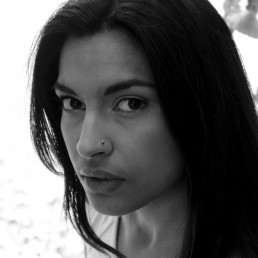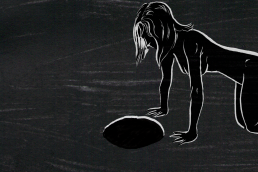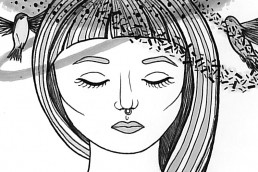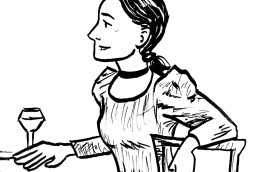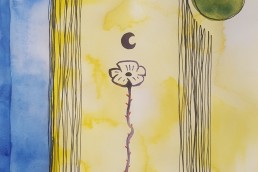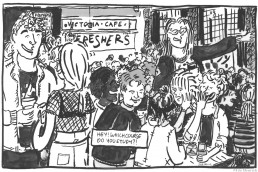by Annabelle Sami
Photo by Jakob Owens on Unsplash.
I’ve been told that I’m a “glass half-empty” type of person. Whilst this may be true, I like to think of it more as a healthy scepticism in my general approach to life. Something that was definitely at play when I first sat down with a psychologist. Of course, this probably wasn’t the best attitude to take into a therapy session. After all, I’m guessing she’d done this quite a few times before and my resting bitch face wasn’t helping. However, my scepticism remained. It wasn’t based on any concern I had about her qualifications: it was a fear of not being understood. A fear I’ve experienced my whole life.
And, as a mixed-race woman of colour, this fear was given extra potency since all my therapists were white.
Statistics have shown that a disproportionate number of BAME (black, Asian and minority ethnic) people are admitted as in-patients in mental health services. In addition, south Asian women in the UK have a higher rate of mental health problems in comparison to black and white women, with older Pakistani and Indian women having an even greater rate of common mental health issues than older white women.1
So how are white mental health practitioners addressing the fact that many of their patients will be people of colour? People with very specific social, racial and cultural backgrounds that they do not have experience of?
When It Goes Wrong
During my time in both counselling and therapy I was seen by five white practitioners and two of colour — guess who I had more success with…
It’s not due to any bias on my part. I explained my worries and concerns, some of which relate to race, in the same way to each. However, I was increasingly finding my concerns dismissed by white therapists.
An example of this came early in my therapy sessions. I remember explaining my situation growing up: living in a predominantly white area and feeling uneasy in certain environments. For example, rural villages with white populations and “old man pubs” could cause anxiety, mostly due to negative past experiences. The therapist, however, put this anxiety down to my own paranoia and fear of being different and, although these are feelings that I experienced, they’re just the symptoms of something greater. Something that isn’t created purely within my psyche.
The fact of racism needs to be addressed by therapists if they want to truly help patients of colour, because feeling different, as a white person in a majority white society, is not the same as feeling different as a person of colour. Therapists should be accepting the factual realities of people of colour rather than relying on misplaced assumptions of paranoia. Because, yes, those men in the pub are staring at me and, yes, those ladies at the village fête will ask me where I’m “really from”. Or call me a mongrel. Or ask if I’m Muslim. (People are nosy and apparently I have a sign on my forehead that says “Ask Me Anything”.)
A failure to acknowledge the effect racism has on mental health only distances the patient from their therapist more, making recovery seem an impossible feat. To ascribe racist microaggressions, like “heritage” questioning or dirty looks, to simple paranoia is only going to make the patient feel “crazy”. It’s down to the white therapist’s lack of understanding of people of colour’s realities that they rely on these tropes to explain away their patients’ experiences of racism as paranoia, low self-esteem, and often an “identity crisis”.
The Mixed-Race Identity Crisis
A racial identity crisis, particularly for mixed-race people, is a common diagnosis for the mental anguish of people of colour. So often, mixed-race people are presented as confused, melodramatically “torn between two worlds” and insecure.
It’s no wonder then that when my therapists were confronted with me, a mixed-race girl who grew up in the most vanilla of suburbs, they immediately placed my anxieties on an “identity crisis”. But being mixed-race doesn’t necessarily imply a confused identity. In fact, mixed-race children have been expertly navigating their liminal existence for years before the fact of race was forced into their consciousness.
A “mixed-race identity crisis” is not something inherent within a mixed-race child’s psyche. It’s the constant enforcement of this “crisis” myth that creates an issue. The insistence that we must feel some sort of resistance between our two halves, and that our families’ differences are irreconcilable, has perpetuated the idea that mixed-race people are not settled within themselves.
But being mentally stable shouldn’t mean being racially stable. This denies the wonderful truth that humans, especially those of mixed race, exist within a constant state of flux, accessing different parts of our personalities and evolving every day.
But how can a white therapist begin to understand the nuances of mixed-race life and discrimination? How can a white therapist help people of colour without empathy?
When It Goes Right
Of course, a perfect scenario would be for patients to be able to have access to practitioners who will understand their social backgrounds. But after waiting for nine months on the waiting list to see a therapist I wasn’t about to be picky with who I was given.
For three years now I’ve seen various therapists, including two women of colour therapists who have been wonderful. The first one empathised with me over our shared anxiety of “old man pubs” which immediately gave me the ability to open up to her. She accepted my reality and had also lived it herself. She understood me.
Although it is practically impossible to find a therapist who has shared the same life experience as you, having someone who has experienced the same discrimination of racism and sexism creates a shared bond of understanding — an understanding which is the major key to healing.
A white therapist will never be able to understand racial discrimination but the one thing they can do is accept it.
Other useful websites and resources:
https://www.touchstonesupport.org.uk/2017/02/mental-health-within-bame-communities/
http://www.communitycare.co.uk/2010/02/19/count-me-in-racial-inequalities-in-mental-health-services/
Annabelle Sami
Annabelle Sami is a London based writer, director and performer. She is currently studying for an MA in English Literature whilst writing comedy books for children.

